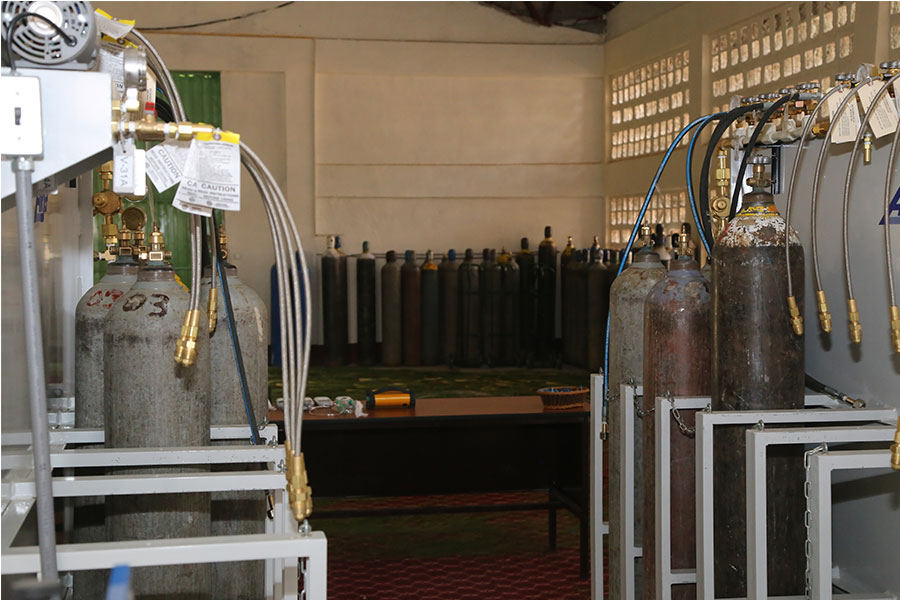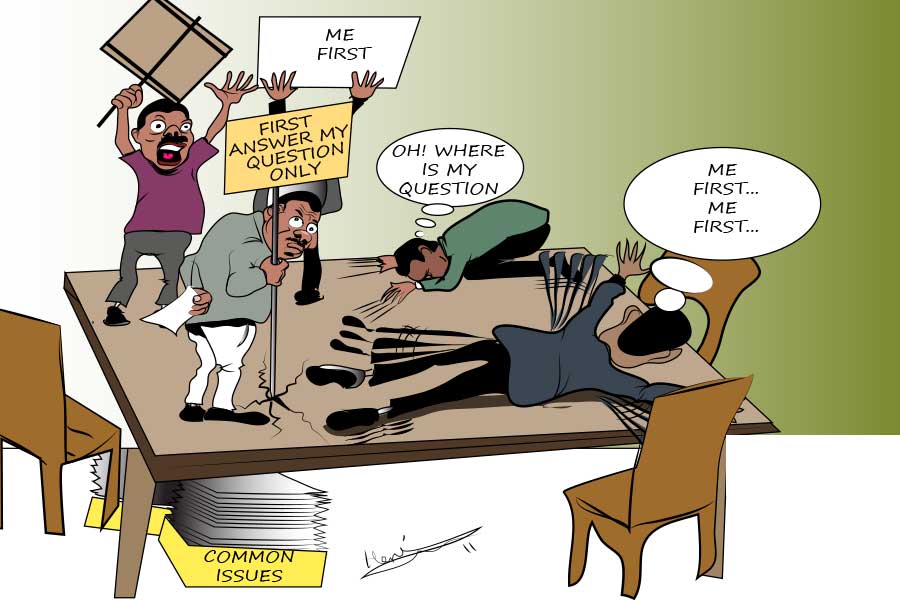
Editorial | Oct 24,2020
Jan 25 , 2020
By Asseged G. Medhin
There is a great deal of effort going into strengthening institutions. Much of it needs to go into improving our value system, writes Asseged G. Medhin (kolass799728@yahoo.com), an insurance veteran and business advisor.
The theory is relatively simple. If we are following a healthy and honest path in our personal lives, then we would also collectively make up a healthy nation. If we are as disapproving of corruption in our individual lives, then we must be fairly objectionable to it as a nation.
More than anything else, attitudinal change is the best defence against corruption. Centring on a strong will to see a just nation with principles, a society that is adamantly against it is the best defence against a government lacking checks and balances.
Why the attitudinal change?
Institutions have long been believed to be the best defences against tyranny. When multiple individuals with diverging political interests share power, they serve as the best defences against each other’s thirst for power and money.
But as the last five years of the past decade have shown, when populism rises and polarisation is the rule of the game, the institutions have become almost useless. And this is in countries with mature democracies. The only thing standing against a complete slide into the old days of authoritarianism is an informed public that still wants to see a just and uncorrupted state.
That is why Ethiopia ought not to only look at institutional reforms. There needs to be societal progress, a change in attitude to ultimately shape resource management. This change in attitude needs to occur in our value system.
Value systems are the seed of individual and national character. By establishing the foundations of the nation’s growth, it advances the capacity of participants that absorb changes in the value system.
Corruption should not be viewed from the perspective of greed. We have to see it as an unwitting decision by individuals to get ahead, usually within a system that is itself broken. It is not a coincidence that corruption is prevalent in countries where, although punishment is severe, poverty and poor socioeconomic structures are rampant.
If we ask even the most corrupt person in the society whether he is happy with the way he conducts himself, the reply would most likely be a big "no". She will explain that she is corrupt, because everyone else is, for without it she cannot survive. He is just trying to do his fair share of “hustling” to get ahead in life.
People that commit corruption are not especially terrible people. They have merely calculated their odds and determined that the best way to get ahead is to take “short cuts”. Deep down in their hearts, they would rather not get their hands dirty.
I am not just saying this because they spend liberally on charitable organizations, contributing to churches or taking in a relative or two. My conviction comes out of the understanding that presented with a better and legal means of getting ahead, most of us are likely to take it.
This though does not mean that we should condone corruption. A growing trend where people we all know to be deeply corrupt but at the same time get our respect is rising. There was a time when people like this were looked down upon and called out for their bad deeds. This is no longer the case.
People that have stolen continue to be respected if they are able to get themselves cleared from the charge irrespective of whether or not they managed to bribe judges. Worse, people may continue to be respected even after having been found guilty, provided they have amassed a good amount of money and if they happened to spend some money for charitable causes.
Although we need to understand the cause of corruption, we do not have to condone these people. In fact, we need to call them out. We need to have the change in attitude to collectively fight against corruption because our institutions are not yet capable of doing that, and nor would they ever be unless an informed public is not created.
If a strong value system is diluted, corruption becomes a common practice as it has now. Our institutions will not be strengthened, and we will fail as a nation. We will continue to reap the bad seeds we have sown.
Changing society is no easy task, but it can be accomplished with good governance. People will always be encouraged at the transparent and honest work that is done at the top. It requires commitment and determination, but in time we will have a more progressive society with a mature sense of justice and a higher value system.
PUBLISHED ON
Jan 25,2020 [ VOL
20 , NO
1030]


Editorial | Oct 24,2020

Fortune News | Apr 06,2019

Fortune News | Jan 01,2022

Sunday with Eden | Dec 14,2019

Radar | May 07,2022

Life Matters | Apr 17,2021


Sunday with Eden | Sep 14,2019

Fortune News | Jul 25,2020

Radar | Nov 28,2020

My Opinion | 131970 Views | Aug 14,2021

My Opinion | 128359 Views | Aug 21,2021

My Opinion | 126297 Views | Sep 10,2021

My Opinion | 123912 Views | Aug 07,2021

Dec 22 , 2024 . By TIZITA SHEWAFERAW
Charged with transforming colossal state-owned enterprises into modern and competitiv...

Aug 18 , 2024 . By AKSAH ITALO
Although predictable Yonas Zerihun's job in the ride-hailing service is not immune to...

Jul 28 , 2024 . By TIZITA SHEWAFERAW
Unhabitual, perhaps too many, Samuel Gebreyohannes, 38, used to occasionally enjoy a couple of beers at breakfast. However, he recently swit...

Jul 13 , 2024 . By AKSAH ITALO
Investors who rely on tractors, trucks, and field vehicles for commuting, transporting commodities, and f...

Jul 5 , 2025
Six years ago, Ethiopia was the darling of international liberal commentators. A year...

Jun 28 , 2025
Meseret Damtie, the assertive auditor general, has never been shy about naming names...

Jun 21 , 2025
A well-worn adage says, “Budget is not destiny, but it is direction.” Examining t...

Jun 14 , 2025
Yet again, the Horn of Africa is bracing for trouble. A region already frayed by wars...

Jul 6 , 2025 . By BEZAWIT HULUAGER
The federal legislature gave Prime Minister Abiy Ahmed (PhD) what he wanted: a 1.9 tr...

Jul 6 , 2025 . By YITBAREK GETACHEW
In a city rising skyward at breakneck speed, a reckoning has arrived. Authorities in...

Jul 6 , 2025 . By NAHOM AYELE
A landmark directive from the Ministry of Finance signals a paradigm shift in the cou...

Jul 6 , 2025 . By NAHOM AYELE
Awash Bank has announced plans to establish a dedicated investment banking subsidiary...